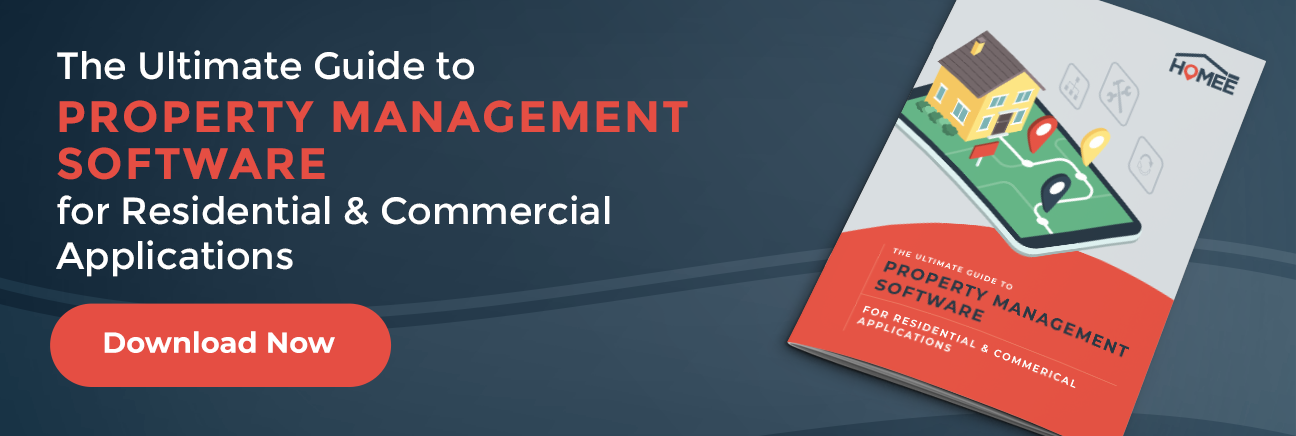5 Tips for Successful Commercial Property Management

5 Tips for Successful Commercial Property Management
Commercial property management may have a lot of overlap with residential property management, but there are still many significant differences in the two fields. There are challenges in commercial property management that residential property managers rarely have to worry about.
For example, commercial property managers often have to deal with charging and reconciling for common area maintenance (CAM) to keep up the communal areas of a commercial building (those areas that are shared by everyone but not directly rented by anyone). With the exception of multifamily properties, residential property managers typically don’t have to worry about this issue.
How can you overcome the challenges of commercial property management to achieve long-term success?
5 Tips for Successful Commercial Property Management
Here are a few tips to help you out.
#1) Consider Investing in Commercial Property Management Software
One of the biggest challenges in managing commercial properties such as office spaces, industrial centers, or retail properties is simply keeping track of all the information you need to make informed decisions. Some key statistics to monitor include:
- Rental income rates;
- Total monthly expenditures;
- Which types of businesses are occupying which properties;
- Applicable local and federal regulations;
- Renter turnover rates; and
- Work orders for property maintenance.
This is a lot to keep track of manually. So, it may help to invest in a commercial property management software that can simplify tracking critical data. Some additional features to look for include renter communication, online bill pay, and property marketing features.
Related: How to Choose the Right Commercial Property Management Platform
#2) Understand the Different Types of Commercial Properties
Commercial properties can be much more varied than residential properties depending on how they’re zoned. From office rental spaces, to spaces optimized for retail, to restaurant spaces, to industrial manufacturing spaces, there are many different types of commercial properties out there. Knowing the different needs of each is crucial to long-term success in commercial property management.
For example, a restaurant or industrial commercial property may require more stringent fire safety measures than a typical retail or office space would. Industrial rental properties might have a significantly higher demand for power utilities than office rentals.
When engaging in commercial property management, it’s vital to understand the needs of different types of commercial property so you can more effectively manage them.
#3) Balance Business Types in Nearby Commercial Property Units
When signing a new commercial property rental lease with a tenant, it’s important to consider how well that renter will mesh with the existing renters in nearby commercial property units. Why? Because, if you put several companies that are competing for the same target market with similar goods/services, they may end up actively interfering with one another’s profits.
When commercial property renters aren’t profiting, they will, consequently, have a harder time paying rent. So, when managing a commercial property with multiple business renters in close proximity, it’s vital to carefully balance the kinds of businesses that you have near one another.
For example, it’s often best to avoid putting two shoe stores right next to each other—unless one specifically targets men’s fashion and the other women’s, there will be too much overlap in their target audience.
#4) Always Remember to be Proactive with Property Maintenance
Keeping commercial properties in top shape should be considered a given for any property management professional. However, simply keeping up with basic maintenance and responding efficiently to emergency maintenance requests isn’t enough. It’s important to apply preventative maintenance to commercial properties to protect both your own interests and the interests of renters.
How does preemptively inspecting for potential issues and applying preventative fixes help both you and your commercial property renters? Here are a few ways:
- It Helps Reduce Maintenance Costs. Fixing small issues before they can become larger issues is a good way to save money on property maintenance. For example, fixing a plumbing leak while it’s a trickle is a lot cheaper than having to tear out and replace large sections of your property’s walls and flooring because of water damage.
- It Keeps Your Commercial Property Looking Nice. The appearance of your commercial property can play a role in the success of the businesses that rent space there because it helps attract customers. This, in turn, helps renters make their payments (and encourages them to keep renewing their lease rather than leave).
- It Helps Prevent Injuries. A lack of maintenance can lead to dangerous conditions in a structure. From respiratory hazards from mold growth, to tripping on uneven flooring, to slips in water puddles from leaks, there are many hazards that occur when maintenance is lacking. Using preventative maintenance helps to prevent these injuries.
- It Can Keep Property Values Up. Commercial properties are often valued based on their grade or class (A, B, or C), with better grades being able to command higher rental fees. Falling behind on maintenance issues can lead to a reduction in class, which makes it harder to command a higher rental fee for the property.
Maintenance is often the single most important issue for determining whether renters will renew their leases or look for greener pastures elsewhere. So, it’s important to be proactive with your maintenance as a commercial property manager.
#5) Have a Plan for Replacing Lost Renters
Even the best renters won’t last forever. There may come a time where a commercial property renter’s business grows too large for the space, they decide to move to a new state for tax reasons, or they simply have to close their doors because of financial difficulties.
The problem is that finding new renters to occupy a commercial space is often far more difficult than it is to find new renters to fill a residential space—everybody needs somewhere to live, but not everyone has what it takes to launch and manage a business.
This is why you should take the time to plan ahead for potential vacancies. For example, you could communicate with renters a few months ahead of their scheduled lease renewal and ask if they’re planning to renew or not. If not, ask why and see what you can do to help smooth the transition—then start preparing to market the about-to-be-vacant rental unit.
Why ask about the reason for stopping the lease? Because, if it’s something in your control, you may be able to change the renter’s mind by making some simple changes. Otherwise, you may be able to make improvements for the next renter so they’re more likely to renew.
You may want to start advertising the space online and offer tours of the space (with the current renter’s permission) to show off what it looks like and to get people interested. It may take a business several months to be ready to move, so doing this early, even before the current renter leaves, can be helpful.
Improve Your Commercial Property Management Processes
These are just a few of the things that you can do to achieve success as a commercial property manager. For more information about commercial property management—and particularly about property maintenance— reach out to the HOMEE team today.




